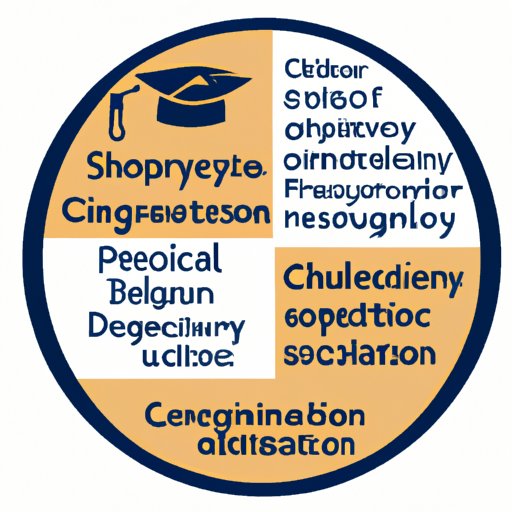Introduction
A psychological science degree is an undergraduate or graduate-level degree that focuses on the study of behavior and mental processes. It combines principles of psychology, neuroscience, biology, and other social sciences to provide students with a comprehensive understanding of the human mind. The purpose of this article is to explore the benefits of a psychological science degree and to discuss the different types of career opportunities available for those with such a degree.

Exploring the Benefits of a Psychological Science Degree
Psychological science degrees provide students with a unique opportunity to study the complexities of the human mind and behavior. With such a degree, students gain an understanding of the scientific principles behind human behavior, as well as the ability to apply these principles to real-world situations. This knowledge can be used in a variety of professions, including clinical psychology, counseling, social work, research science, and more.
A psychological science degree also provides students with an interdisciplinary approach to studying the mind and behavior. This means that they are able to draw from multiple disciplines to understand the complexity of the human experience. For example, a student may learn about biological processes and how they interact with psychological and social processes. By understanding how these different factors interact, students are better prepared to understand and address mental health issues in the real world.
Career Opportunities with a Psychological Science Degree
With a psychological science degree, graduates can pursue a variety of careers. The most popular career paths include clinical psychologist, counselor, social worker, and research scientist. Clinical psychologists evaluate, diagnose, and treat mental health issues. Counselors provide emotional support and guidance to individuals dealing with personal issues. Social workers help individuals and families navigate complex social systems. Research scientists study the effects of various treatments and interventions on mental health issues.
No matter which career path you choose, a psychological science degree can open up many doors. This degree provides a strong foundation for further education and training, and it can lead to a successful career in the field of mental health.

The Basics of a Psychological Science Degree
In order to obtain a psychological science degree, students must complete a certain number of credits in the field. Typically, this includes courses in psychology, neuroscience, biology, sociology, and other related fields. Students may also be required to complete a thesis or research project. Depending on the program, the length of the program can vary from two to four years for an undergraduate degree and one to three years for a master’s degree.
What to Expect from a Typical Psychological Science Program
Most psychological science programs cover core topics such as cognitive psychology, developmental psychology, research methods, and statistics. Students may also take classes in abnormal psychology, social psychology, and psychotherapy. Sample classes may include Introduction to Psychology, Biological Foundations of Behavior, Cognitive Psychology, Abnormal Psychology, and Social Psychology.

Understanding the Different Types of Psychological Science Degrees
Psychological science degrees come in three main forms: the bachelor’s degree, the master’s degree, and the doctoral degree. A bachelor’s degree in psychological science typically requires 120 credits and can take up to four years to complete. This degree provides a broad overview of the field and prepares students for entry-level positions in psychology-related fields.
A master’s degree in psychological science typically requires an additional two to three years of study and may require completion of a thesis. This degree provides more specialized knowledge and skills and can prepare students for advanced positions in the field. Finally, a doctoral degree in psychological science typically takes an additional four to six years of study and usually requires the completion of a dissertation. This degree is necessary for those wishing to pursue a career in research or academia.
Conclusion
A psychological science degree provides students with a comprehensive understanding of the human mind and behavior. With this degree, students can pursue a variety of careers in the field, from clinical psychologist to research scientist. Additionally, the degree offers an interdisciplinary approach to the study of the mind and behavior, allowing students to draw from multiple disciplines to better understand the complexities of the human experience. From bachelor’s to doctoral degrees, there are a variety of psychological science degrees available to suit the needs of any aspiring professional.
(Note: Is this article not meeting your expectations? Do you have knowledge or insights to share? Unlock new opportunities and expand your reach by joining our authors team. Click Registration to join us and share your expertise with our readers.)
